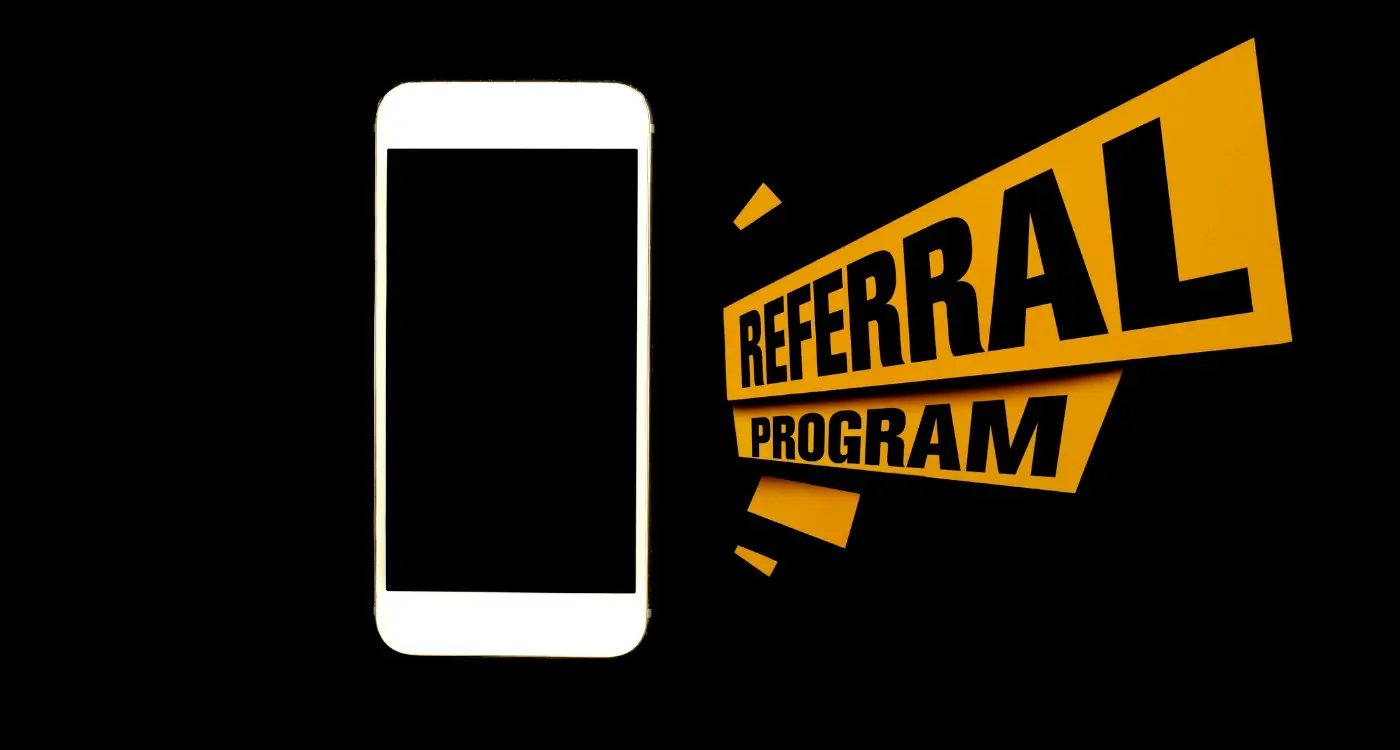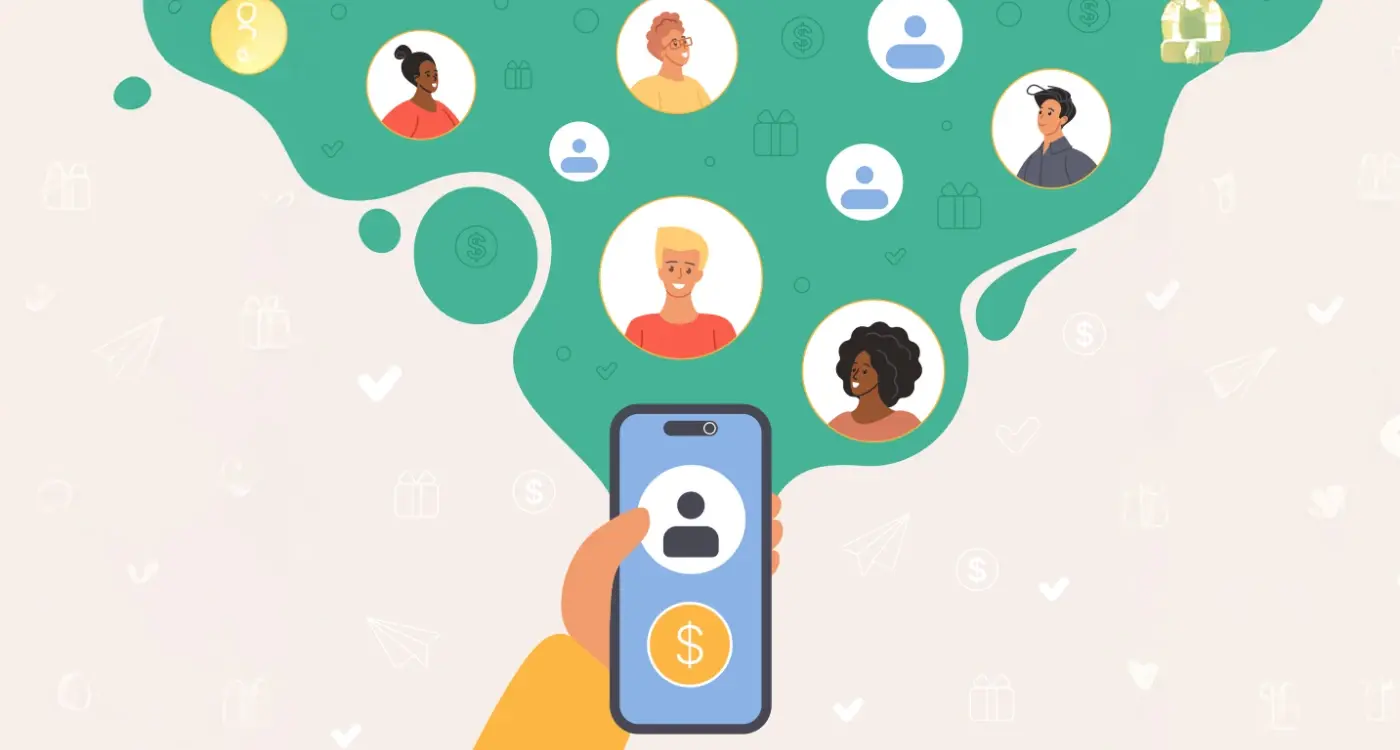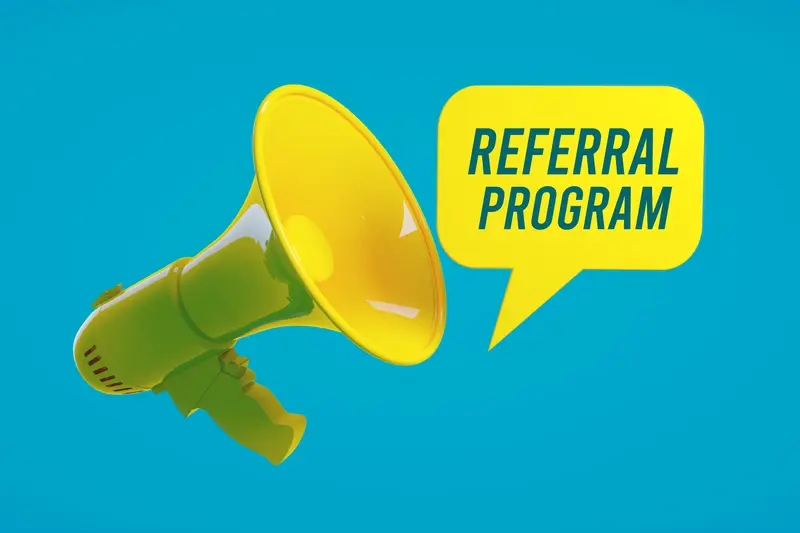What's the Difference Between Referral Programs and Affiliate Marketing for Apps?
You've built a brilliant mobile app. Downloads are happening, users are engaging, but there's one problem that keeps gnawing at you—growth has hit a wall. You know you need more users, but your marketing budget isn't exactly overflowing and those paid advertising costs keep climbing higher each month. Sound familiar?
This is where most app developers find themselves scratching their heads, wondering how to get their existing users to bring in new ones without breaking the bank. You've probably heard about referral programs and affiliate marketing as potential solutions, but here's the thing—many people use these terms interchangeably when they're actually quite different beasts altogether.
I've spent years helping mobile app developers navigate these marketing waters, and I can tell you that choosing between referral programs and affiliate marketing isn't just a coin-flip decision. Each approach works differently, targets different people, and can produce vastly different results for your app's growth strategy.
Understanding the distinction between referral programs and affiliate marketing can mean the difference between sustainable growth and wasted marketing spend
The confusion makes sense though—both strategies involve getting other people to promote your app in exchange for some kind of reward. But the similarities end there. Getting this marketing comparison right matters because picking the wrong program type for your mobile app could mean missing out on your best growth opportunities; worse still, you might end up spending money on a strategy that simply doesn't fit your users or your business model.
Understanding Referral Programs
Referral programs are one of those marketing tools that make perfect sense when you think about it. They work by getting your existing users to recommend your app to their friends and family. Simple, right? When someone downloads and uses your app because their mate told them about it, both the original user and the new user usually get some kind of reward.
The rewards can be anything really—free premium features, in-app currency, discounts, or even cold hard cash. The key thing is that the person doing the referring gets something for their trouble, and the new user gets a nice welcome bonus for joining.
How Referral Programs Actually Work
Most referral systems give each user a unique code or link they can share. When someone uses that code to sign up, the system knows exactly who referred them. Then both people get their rewards automatically—no fuss, no paperwork.
What makes referral programs so effective is trust. People are much more likely to try an app when someone they know personally recommends it; it's like having a friend vouch for you rather than shouting about how great you are to strangers on the street.
Why Apps Love Them
From a business perspective, referral programs are brilliant because they turn your users into a sales team. You're not paying for expensive advertising—you're rewarding the people who already love your app enough to tell others about it. The users who come through referrals tend to stick around longer too, because they've joined based on a personal recommendation rather than a random advert they saw online.
What Is Affiliate Marketing
Affiliate marketing is a performance-based marketing strategy where external partners—known as affiliates—promote your mobile app in exchange for a commission when specific actions are completed. Think of it as hiring a sales team that only gets paid when they deliver results.
Unlike referral programmes that rely on your existing users, affiliate marketing casts a much wider net. Affiliates can be influencers, bloggers, content creators, or even other businesses with audiences that might be interested in your app. They don't need to be current users of your product; they just need to believe it's worth promoting to their followers.
How Affiliate Marketing Works
The process is fairly straightforward. You provide affiliates with unique tracking links or promo codes that they share with their audience. When someone clicks their link and completes a desired action—downloading your app, making a purchase, or subscribing—the affiliate earns their commission. The beauty of this system is that you only pay for actual results, not just exposure.
Start with micro-influencers who have engaged audiences rather than chasing big names with millions of followers—engagement rates are often much higher and costs significantly lower.
Types of Affiliate Partnerships
Affiliate marketing for mobile apps comes in several forms:
- Influencer partnerships on social media platforms
- Content creators who review or feature apps
- Cashback and coupon websites
- Email marketing specialists
- YouTube channels focused on app recommendations
- Podcast hosts who mention apps during episodes
The key difference from referral marketing is that affiliates are often professional marketers who understand how to convert audiences. They're not just sharing because they love your app—they're sharing because they see an opportunity to earn money whilst providing value to their followers.
Key Differences Between The Two Program Types
Right, let's get straight to the point—referral programmes and affiliate marketing might seem similar on the surface, but they're actually quite different beasts. The main difference? Who's doing the promoting and why they're doing it.
Referral programmes rely on your existing users to spread the word about your app. These are people who already love what you've built and want to share it with their mates, family, or colleagues. They're motivated by rewards, sure, but there's usually some genuine enthusiasm behind their recommendations. Affiliate marketing, on the other hand, involves professional marketers or content creators who promote your app to earn commission—they might not even use your app themselves.
The Financial Structure
The way you pay out rewards differs significantly between these two approaches. Referral programmes typically offer smaller, fixed rewards—maybe a free month of premium features or a small cash bonus. Affiliate marketing often involves percentage-based commissions that can be much larger, especially for high-value apps or subscriptions.
Reach and Audience Quality
Here's where things get interesting. Referral programmes usually have a smaller reach but higher conversion rates because recommendations come from trusted sources. Affiliate marketing can reach massive audiences through established marketing channels, but the conversion quality might be lower since the relationship is more transactional.
| Factor | Referral Programmes | Affiliate Marketing |
|---|---|---|
| Who promotes | Existing users | Professional marketers |
| Typical reward size | Smaller, fixed amounts | Larger, commission-based |
| Trust level | High (personal recommendations) | Variable (depends on affiliate) |
| Setup complexity | Simple | More complex |
Benefits And Drawbacks Of Referral Programs
Referral programs have become quite popular with mobile app developers, and honestly, it's easy to see why. When they work well, they're brilliant at bringing in new users who actually stick around. Think about it—when your mate recommends an app to you, you're much more likely to download it and give it a proper go than if you just saw a random advert.
The main benefit is trust. People trust their friends and family more than they trust marketing messages, which means referral programs often deliver higher-quality users. These referred users tend to be more engaged and stay with your app longer. Plus, referral programs can be cost-effective once they get rolling—you're only paying out rewards when someone actually converts.
The Challenges You'll Face
But here's where things get tricky. Referral programs can be slow to take off, especially if your app doesn't have many users yet. You need a solid base of happy customers before word-of-mouth marketing really kicks in. And let's be honest—not everyone likes sharing apps with their contacts.
The biggest mistake I see with referral programs is expecting them to work immediately. They need time to build momentum, and that can test your patience.
Making Rewards Work
Getting the reward structure right is trickier than you might think. Make the incentive too small and nobody bothers; make it too generous and you'll eat into your profits quickly. You've also got to watch out for fraud—some people will try to game the system by creating fake accounts or using other dodgy tactics to claim rewards they haven't earned.
Referral programs work best for mobile apps that people genuinely love using and want to share naturally. If your app solves a real problem or provides genuine value, referrals can be a fantastic way to grow your user base organically.
Benefits And Drawbacks Of Affiliate Marketing
Affiliate marketing can be brilliant for app growth, but it's not all sunshine and rainbows. I've seen apps absolutely smash their download targets through affiliate programmes—and I've also watched others burn through budgets with very little to show for it. The reality is somewhere in the middle, and understanding both sides helps you make better decisions.
The Good Stuff
The biggest win with affiliate marketing is the reach you get. Your affiliates already have established audiences who trust them, which means you're tapping into communities that would take you years to build yourself. When someone promotes your app to their followers, it carries more weight than your own advertising ever could.
Performance-based payments make financial sense too. You only pay when someone actually downloads and uses your app—no wasted spend on clicks that go nowhere. This makes budgeting much more predictable; you know exactly what each user costs you.
The Not-So-Good Bits
Managing affiliate programmes takes serious time and effort. You're dealing with multiple people, tracking their performance, handling payments, and making sure they're representing your app correctly. It's like herding cats sometimes!
Quality control becomes tricky when you're not directly controlling the message. Some affiliates might oversell your app's features or target the wrong audience entirely—leading to downloads that turn into quick uninstalls.
- Higher user acquisition costs compared to referral programmes
- Less control over brand messaging and positioning
- Complex tracking and attribution challenges
- Potential for affiliate fraud or low-quality traffic
- Administrative overhead managing multiple partnerships
The truth is affiliate marketing works best when you have the resources to manage it properly and clear systems in place to track results.
Which Marketing Comparison Works Best For Your Mobile App
After building mobile apps for over eight years, I can tell you that choosing between referral programmes and affiliate marketing isn't a one-size-fits-all decision. The best approach depends entirely on your app's nature, your target audience, and your budget constraints.
If you're running a consumer app—think social media, gaming, or lifestyle apps—referral programmes typically work brilliantly. Your existing users already love your product, and they're more likely to recommend it to friends and family. The personal connection makes all the difference here.
Start small with whichever approach you choose. Test the waters with a simple programme before investing heavily in complex tracking systems or recruitment campaigns.
When Affiliate Marketing Makes More Sense
Affiliate marketing shines when you need to reach new audiences quickly or when your app serves a niche market. Business apps, productivity tools, and specialised software often perform better with affiliates who understand the industry and can speak to specific pain points.
Making Your Decision
Here's what you should consider when making your choice:
- Budget available for commissions and management
- Your app's target demographic and how they discover new apps
- Whether you have existing users who actively engage with your app
- The complexity of explaining your app's benefits
- Your capacity to manage and track different types of partnerships
Many successful apps actually use both approaches—starting with referrals to build momentum, then expanding into affiliate marketing as they grow. The key is understanding your users and testing what works best for your specific situation rather than following what others do.
Conclusion
After working with countless app developers over the years, I can tell you that choosing between referral programmes and affiliate marketing isn't always straightforward. Both approaches have their place in the mobile app world, and honestly, the "right" choice depends entirely on your specific situation.
Referral programmes work brilliantly when you want to keep things simple and focus on genuine user satisfaction. Your existing users become your biggest advocates, sharing your app with friends and family because they genuinely love it. The relationships feel more authentic, the costs are predictable, and you maintain complete control over the experience. But—and this is a big but—your reach is limited to your current user base and their immediate networks.
Affiliate marketing opens up a much wider world of possibilities. You can tap into established audiences, scale faster, and reach demographics you might never have accessed otherwise. The trade-off? It's more complex to manage, costs can spiral if you're not careful, and you're putting your brand reputation partly in other people's hands.
Here's what I've learned from watching apps succeed and fail with both approaches: start with what fits your current stage. If you're just getting started and have a tight budget, referral programmes offer a safer testing ground. Once you've proven your concept and have some cash flow, that's when affiliate marketing becomes more appealing.
The most successful apps I've worked on often end up using both strategies. They're not mutually exclusive, and combining them can give you the best of both worlds—authentic user advocacy plus broader market reach.
Share this
Subscribe To Our Learning Centre
You May Also Like
These Related Guides

How Do I Promote My App's Referral Program To Existing Users?

Which Apps Have the Most Successful Referral Programs?



